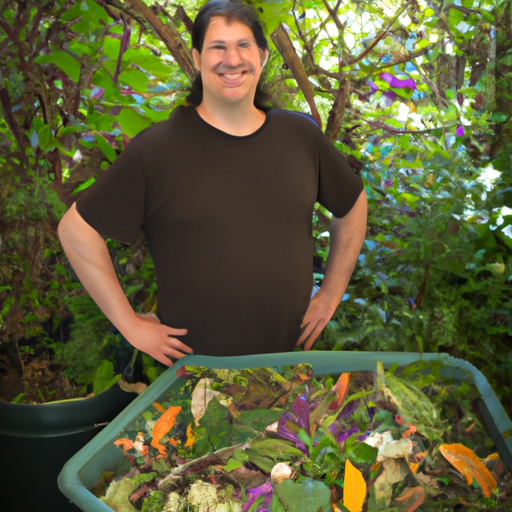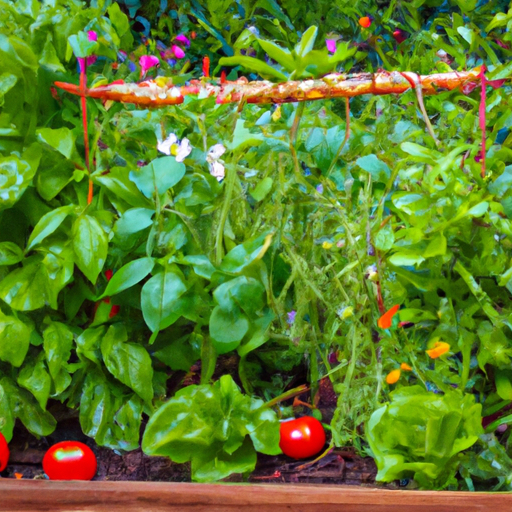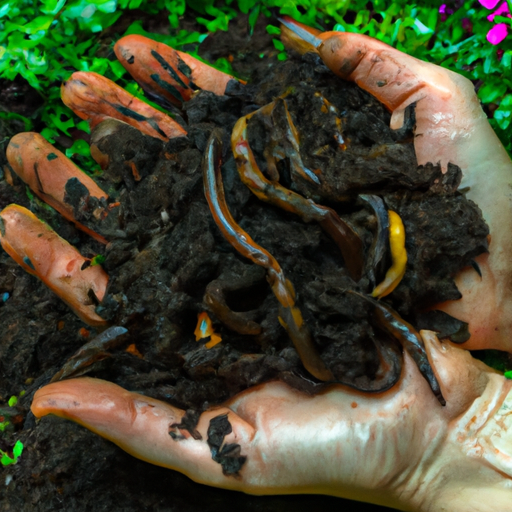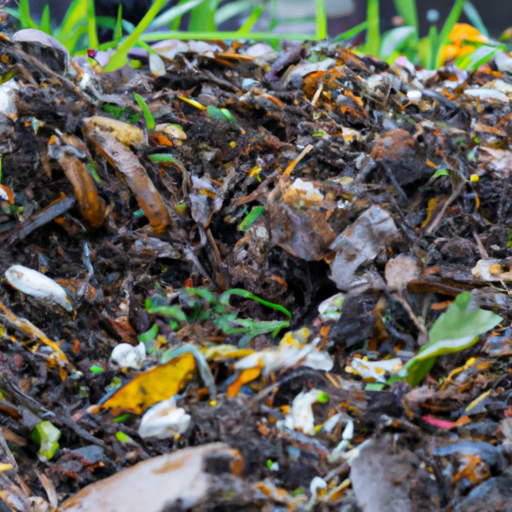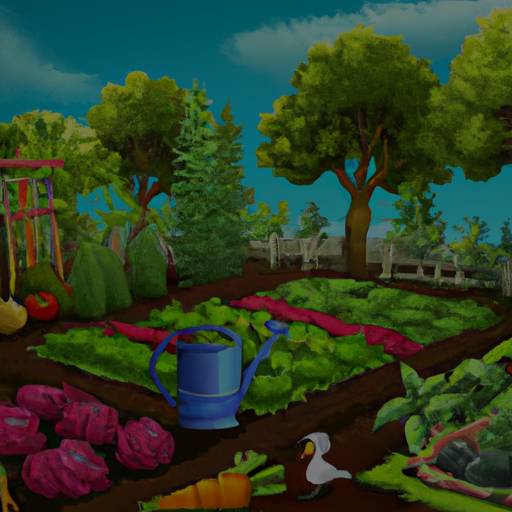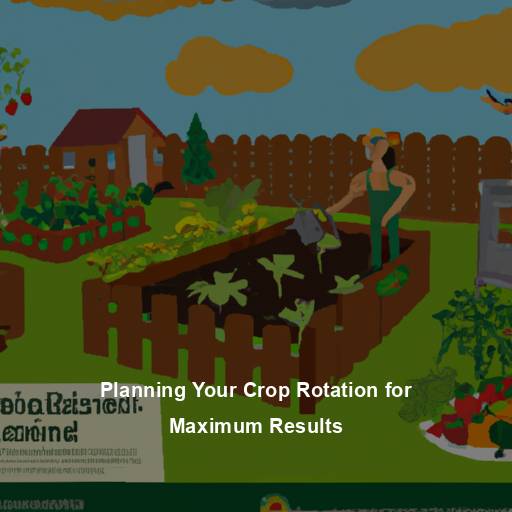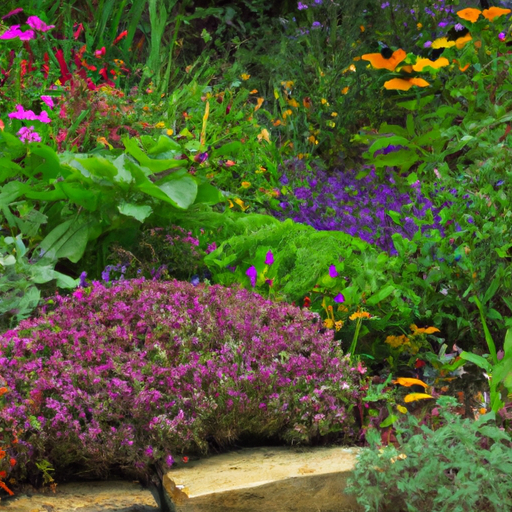Welcome, fellow gardeners and enthusiasts! Today we’re going to dive into the world of composting. Perhaps you’ve heard a little about it or maybe you’re a complete novice but looking for ways to reduce your food waste and improve your soil health. Whatever your reason, I’m here to offer you a beginner’s guide on how to start composting today.
Composting is an excellent way to turn your everyday scraps into something valuable for your garden. It’s not only good for the environment but also beneficial for our gardens as well.
Compost adds nutrients back into the soil, improves soil structure, helps retain moisture, suppresses plant diseases and pests while reducing greenhouse gas emissions from landfills. So let’s get started with this ultimate guide that will take you through everything you need to know – from choosing the right type of bin to what can be composted and what cannot be.
Understanding The Benefits Of Composting
Did you know that the average American family wastes about 25% of the food they buy? That’s a staggering amount of waste, and it has serious environmental impacts.
However, there is a solution: composting. Composting benefits not only your garden but also helps to reduce greenhouse gas emissions by keeping organic matter out of landfills where it would decompose without oxygen and release methane.
By composting at home, we can turn our food scraps into nutrient-rich soil amendments for our gardens or yards while simultaneously reducing our carbon footprint.
As a Master Gardener, I highly recommend starting a backyard compost pile or using a small-scale composter to begin taking advantage of these significant benefits.
Choosing The Right Type Of Composting Bin
When it comes to composting, choosing the right type of bin is crucial. There are several options available, including DIY solutions or store-bought bins. For those living in apartments, there are even smaller-scale options like worm bins or Bokashi buckets that can be used indoors.
It’s important to consider factors such as space availability and the amount of waste being generated when selecting a bin. Some bins may work better for certain types of materials, so do your research before making a decision.
With the right bin, you’ll be well on your way to reducing food waste and creating nutrient-rich soil for your garden.
What Can And Cannot Be Composted
As we learned in the previous section, choosing the right type of composting bin is crucial for successful composting. Now that you have your bin ready to go, it’s important to know what can and cannot be composted.
Composting Do’s and Don’ts vary depending on what materials are available and how much space you have. For those with small spaces, indoor composting may be a better option than outdoor composting.
When deciding what to put in your compost pile, remember that organic matter such as fruit and vegetable scraps, coffee grounds, leaves, grass clippings, and eggshells are all great additions. However, there are certain items that should never be added to your compost pile including meat products, dairy products, oils or fats, pet waste, treated wood or chemicals.
Keep this list handy when starting your first batch of compost!
Maintaining Your Compost Pile
Maintaining your compost pile is crucial to ensuring the success of your efforts in reducing food waste. One important aspect to keep track of is turning frequency. Turning your compost allows for proper aeration and mixing, which helps speed up the decomposition process. As a general rule, aim to turn your compost every one to two weeks during warmer months and every three to four weeks during colder months. However, it’s essential to pay attention to the temperature and moisture levels within the pile as well. If you notice that your compost isn’t breaking down as quickly or emitting an unpleasant odor, it may be time to troubleshoot some issues. Common problems include an imbalance in nitrogen-rich “green” materials versus carbon-rich “brown” materials or inadequate airflow within the pile. By addressing these issues promptly, you can get back on track towards creating nutrient-rich soil for your garden. Remember that maintaining a healthy compost pile takes patience and dedication but is ultimately rewarding when seeing the benefits it has on both the environment and your own gardening endeavors!
| Column 1 | Column 2 | Column 3 |
| — | — | — |
| Feeling accomplished after properly turning compost | Frustration when faced with troubleshooting issues | Excitement at finally using homemade compost in garden | | Increased sustainability by reducing waste and reliance on commercial fertilizers | Improved soil quality and plant growth due to added nutrients and microorganisms | Reduced carbon footprint by diverting organic waste from landfills |
Using Your Compost In The Garden
Ah, the joys of gardening. The feeling of dirt under your nails and sweat on your brow as you toil away in the sun. All for the love of seeing vibrant, healthy plants bursting forth from their soil. And what better way to give them a boost than with some homemade compost?
Not only does it reduce food waste by turning scraps into nourishing plant food, but it also improves garden soil and boosts overall plant growth. So go ahead, grab that pitchfork and let’s dive into how you can use your compost in the garden.
– Top dress your lawn: sprinkle a thin layer of compost over your grass to improve its health and appearance
– Mulch around trees and shrubs: protect against moisture loss and suppress weeds while providing nutrients
– Amend planting holes: mix compost into the hole before planting new flowers or vegetables for an extra nutrient kick
– Create raised beds: fill beds with a mixture of compost and soil for optimal growing conditions
As a Master Gardener, I cannot stress enough the importance of using quality ingredients when making compost. The end result will only be as good as what goes into it. Once your compost is ready to use, spread it evenly throughout your garden soil or add it directly to planting holes.
Your plants will thank you with robust growth and bountiful harvests. Happy gardening!
Frequently Asked Questions
Can I Compost Meat And Dairy Products?
Composting meat and dairy products can be a tricky practice, but it is not impossible.
There are pros and cons to composting these items, such as the high nitrogen content that speeds up decomposition but also attracts pests like rodents and raccoons.
Alternatives to composting include burying meat scraps in your garden or sending them to a commercial compost facility if you have access.
As a Master Gardener, I recommend being cautious when considering adding animal products to your pile and always monitoring for any signs of unwanted visitors.
How Long Does It Take For Compost To Be Ready To Use?
Compost is a valuable resource for gardeners, but how long does it take for compost to be ready to use?
On average, it takes about six months to two years for compost to fully decompose and become usable. The timeline can vary depending on several factors such as temperature, moisture levels, carbon-to-nitrogen ratio, and the type of materials being used.
To speed up the process, you can troubleshoot common issues such as lack of oxygen or too much water. As a Master Gardener, I recommend regularly turning your compost pile and monitoring its progress to ensure optimal conditions for decomposition.
Is It Possible To Compost In An Apartment Or Small Living Space?
Indoor composting is a great option for those living in apartments or small spaces. With the help of worms, you can turn your food scraps into nutrient-rich soil without the need for outdoor space.
Composting with worms, also known as vermicomposting, involves introducing red wiggler worms to your bin and feeding them a balanced diet of fruits, vegetables, and other organic matter. The worms break down the food waste through their digestive system and produce castings that serve as an excellent fertilizer for plants.
It’s important to maintain proper moisture levels and keep the bin well-aerated to ensure successful indoor composting.
What Should I Do If My Compost Smells Bad?
Ah, the sweet smell of composting success! But what happens when that scent turns sour?
Fear not, fellow gardener. Even the most experienced composter encounters a funky fragrance now and then.
When troubleshooting your compost pile’s odour, first ensure proper moisture levels and adequate oxygen flow.
If those factors check out, try incorporating odour control techniques such as adding dry materials like leaves or straw to balance wet food scraps.
And if all else fails, remember: every stinky setback is just another opportunity to learn and grow (literally).
Happy composting!
Can I Use Compost Made From Treated Lumber Or Painted Wood Scraps?
Using compost made from treated lumber or painted wood scraps is not recommended as it can contain harmful chemicals that may be detrimental to your garden.
As a Master Gardener, it’s important to adhere to the dos and don’ts of composting for optimal benefits.
While composting is an excellent way to reduce food waste and improve soil quality, it’s crucial to use organic materials without any toxic substances.
Stick with natural sources such as grass clippings, leaves, fruit and vegetable scraps, coffee grounds, and eggshells for safe and effective homemade compost.
Conclusion
In conclusion, composting is a brilliant way to reduce food waste while also providing nutrient-rich soil for your plants. While it may seem daunting at first, with the right information and tools, anyone can become a successful composter.
Remember to follow the basic guidelines of what can and cannot be composted, as well as ensuring proper air circulation and moisture levels in your bin or pile.
Don’t let bad odors discourage you – simply adjust your mix until you find the perfect balance. And if you’re feeling limited by lack of outdoor space, don’t fret! There are plenty of indoor options available for apartment-dwellers and those with small living spaces.
As a Master Gardener myself, I highly encourage everyone to give composting a try. Not only will you be doing your part for the environment, but you’ll also reap the benefits of healthier soil and happier plants.
So go forth and get composting!
